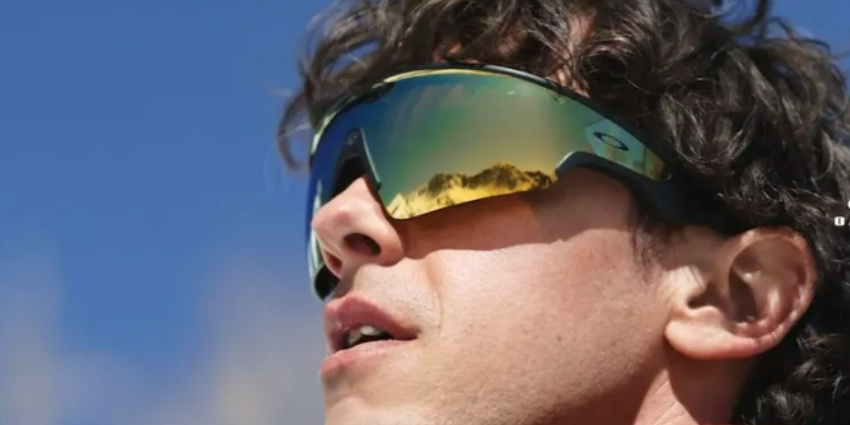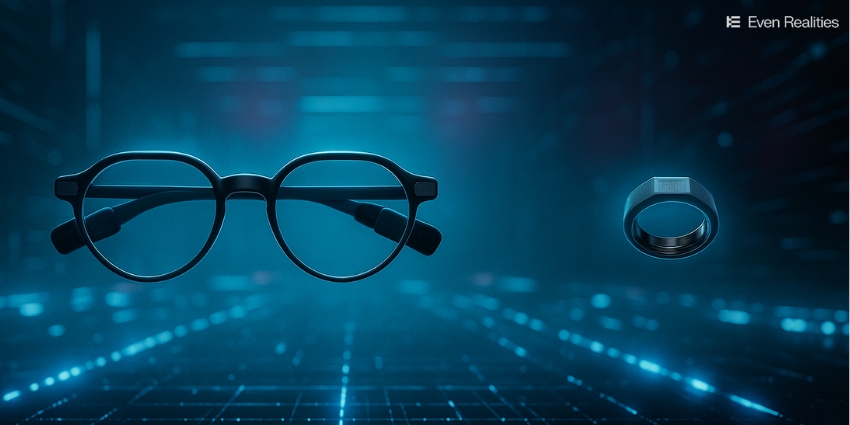As someone who loves using my Meta Ray-Bans for capturing photos and videos while skiing with my family in the Alps, I believe we’re witnessing a pivotal moment in sports technology. If you’re a sports tech professional, involved in sports content creation or simply into sports, the leaked Oakley Meta Vanguard AI glasses represent a breakthrough that could fundamentally change how we capture and analyze athletic movement.
This week’s leaked footage circulating across tech outlets reveals something genuinely revolutionary in sports wearable technology. While traditional action cameras require athletes to compromise their natural movement or rely on external operators, Meta’s upcoming Vanguard design features a camera positioned directly in the center of the frame, delivering an authentic first-person perspective that’s never been achieved in sports documentation.
Redefining Athletic Perspective Capture
The wraparound, shield-style design isn’t just aesthetically pleasing; it’s engineered for the demands of high-performance athletics. Sources indicate the Vanguard specifically targets cyclists, skiers, and runners, addressing the persistent challenge of capturing genuine athletic perspective without compromising performance or safety.
Consider the implications for sports coaching and performance analysis. Traditional video analysis relies on external cameras that miss the subtle head movements, eye tracking, and peripheral awareness that define elite athletic performance. The Vanguard’s centered camera placement promises to capture exactly what athletes see and experience during critical moments of competition or training.
This technology could transform how coaches analyze technique in sports like skiing, where body position and visual focus directly impact performance. Instead of guessing what an athlete was looking at during a turn or jump, coaches could review the exact visual information that informed split-second decisions.
Beyond Action Cameras: Immersive Training Applications
While leaked promotional footage showcases skiing and running scenarios, the underlying technology suggests revolutionary applications for sports training and development. The Vanguard reportedly includes Meta’s proven smart glasses features: cameras, speakers, microphones, and AI-powered voice commands through “Hey Meta” activation.
The combination of centered camera placement with Meta’s AI capabilities could create unprecedented opportunities for real-time coaching feedback and immersive training experiences.
The strategic absence of a heads-up display actually enhances the Vanguard’s value for serious athletic applications. Unlike AR overlays that could distract during high-speed or high-stakes activities, the Vanguard focuses purely on capturing authentic athletic experience while maintaining the natural field of vision athletes depend on for peak performance.
Sports organizations already experimenting with VR training could find the Vanguard provides the missing link between virtual training environments and real-world athletic experience. Imagine ski racing teams using Vanguard footage to create immersive VR training courses based on actual Olympic runs, or cycling coaches developing virtual reality training scenarios using real-world race footage captured from the athlete’s exact perspective.
Transforming Sports Content and Fan Engagement
Meta’s collaboration with Oakley under the EssilorLuxottica umbrella signals serious investment in sports-specific wearable technology. The Vanguard name builds on Oakley’s established wraparound performance eyewear category, demonstrating deep understanding of athletic user needs and sports culture integration.
For sports content creators and broadcasters, the Vanguard model reveals game-changing possibilities for immersive sports coverage. Traditional sports broadcasting relies on external cameras that, while spectacular, can’t convey the visceral experience of athletic performance. First-person footage from the Sphaera could create entirely new categories of sports content, from training documentaries to immersive fan experiences.
The technology could revolutionize sports analysis across disciplines. Tennis coaches could review exact visual cues during crucial points, mountain bikers could analyze line choice and terrain reading, and marathon runners could study pacing strategies from a truly authentic perspective. The applications extend beyond individual sports to team dynamics, where understanding what athletes see during complex plays could enhance tactical development.
Industry Impact for Sports Technology
This year’s Meta Connect 2025 suggests an imminent announcement that could reshape sports technology adoption. While specific details about durability ratings, battery life for extended training sessions, and storage capacity for long competitions remain unconfirmed, the design philosophy clearly prioritizes athletic performance over consumer convenience features.
Sports technology professionals should recognize the Sphaera as potentially filling critical gaps in current performance analysis tools. The wraparound design suggests stability during intense physical activity, while the centered camera addresses years of frustration with off-center action camera footage that misses crucial visual information.
For athletic organizations evaluating technology investments, the Vanguard represents a convergence of proven smart glasses capabilities with purpose-built sports design. This could be the tool that finally makes first-person athletic documentation practical for mainstream sports training and analysis applications.
Ponder This: The Future of Athletic Experience
I’m struck by how the Vanguard design represents more than just another sports gadget. They signal the emergence of technology that truly understands athletic needs rather than forcing athletes to adapt to consumer-focused devices. The centered camera placement alone addresses fundamental limitations that have prevented smart glasses from becoming essential sports training tools.
We’re approaching a moment where the line between athletic experience and digital documentation dissolves completely. The Vanguard’s focus on authentic perspective capture, combined with Meta’s AI capabilities, suggests we’re moving toward a future where every training session and competition becomes a resource for continuous improvement and immersive analysis.
The question for sports professionals isn’t whether this technology will transform athletic training and analysis; it’s which organizations will gain competitive advantages through early adoption. The Vanguard model offers a compelling preview of what’s possible when technology companies design specifically for the unique demands of athletic performance rather than adapting consumer devices for sports applications.
Join our community on LinkedIn to continue the conversation with 2000+ members and subscribe to our newsletter for our weekly rundown of the most crucial XR industry news.







